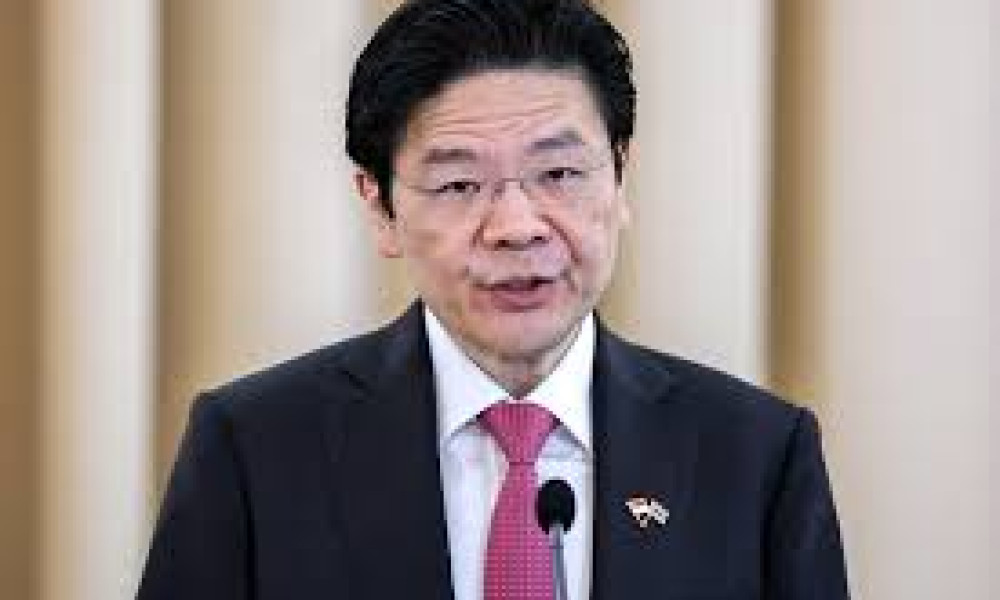Singaporean Prime Minister Lawrence Wong’s recent three-day visit to India has set the stage for a significant boost in bilateral ties. This important visit, Wong’s first as Prime Minister, brought a clear focus on deepening the economic ties between the two nations, building upon their already strong foundational complementarities.
The discussions promise a future rich with collaboration, as evidenced by the five agreements anticipated to be inked. These agreements span crucial sectors such as shipping, civil aviation, and even space, indicating a broad and ambitious scope for partnership.
Prime Minister Narendra Modi and PM Wong held extensive talks, a highlight of the visit. These discussions culminated in the virtual inauguration of a container terminal at Nhava Sheva port in Mumbai. This particular project is a testament to Singapore’s commitment, with the Port of Singapore Authority (PSA International) having invested over USD 1 billion into its development.
A key outcome expected from their talks is the finalization of a roadmap for enhanced cooperation across eight specific pillars. These pillars are diverse and strategically chosen, encompassing economic cooperation, skills training, digitalization, sustainability, connectivity, healthcare and medicine, and defense and security. Such a comprehensive approach underscores the depth of the intended partnership.
Beyond these pillars, there’s also consideration for joint development of small modular reactors (SMRs) in the civil nuclear sector. This particular area highlights a forward-thinking approach to energy and technology collaboration, moving towards sustainable and innovative solutions.
Singapore has long been a vital source of investment for India. Since 2014, cumulative investments from Singapore have reached an impressive USD 175 billion. A substantial portion of this, USD 60 billion, arrived in the post-Covid period, showcasing continued confidence in the Indian market.
Economically, Singapore stands as India’s sixth largest trade partner for FY 2024-25, accounting for approximately 2.96 percent of India’s total trade. This robust relationship is firmly anchored by the Comprehensive Economic Cooperation Agreement (CECA), originally signed back in 2005.
The Ministry of External Affairs (MEA) emphasized Singapore’s role as an important partner, central to India’s ‘Act East’ Policy. This visit, conveniently coinciding with the 60th anniversary of India-Singapore diplomatic relations, serves to reaffirm both countries’ unwavering commitment to strengthening their comprehensive strategic partnership. The MEA noted that the visit presented a valuable opportunity for both prime ministers to review their multifaceted cooperation and chart a course for future endeavors. Regional and international issues of mutual interest were also on the agenda for discussion.
PM Wong embarked on this significant journey accompanied by his spouse and a high-level delegation. This included prominent figures such as Foreign Minister Vivian Balakrishnan and Transport and Finance Minister Jeffrey Siow, underscoring the importance Singapore places on this bilateral engagement. During his visit, PM Wong also paid a call on President Droupadi Murmu. Additionally, External Affairs Minister S Jaishankar and several other Union ministers were scheduled to meet with PM Wong, further solidifying the high-level interactions.
Relations between India and Singapore were elevated to a comprehensive strategic partnership during PM Modi’s visit to Singapore in September of the previous year. This elevation laid the groundwork for the current discussions and future collaborations.
Looking ahead, another exciting proposal on the table involves the possibility of exporting solar energy from India to Singapore. This ambitious project envisions an underwater cable that could also serve a dual purpose for data connectivity. While a feasibility study indicated some challenges, particularly concerning the laying of the cable in the Andaman Trench, the initiative highlights an innovative approach to energy and digital infrastructure.
In line with the data connectivity proposal, a financial data regulatory “sandbox” has been established at Gift City in Gujarat, a creative solution to foster innovation in financial technology. Furthermore, the export of green ammonia and green hydrogen from India to Singapore is another promising proposal under active consideration, reflecting a shared commitment to green energy and sustainability.
The groundwork for PM Wong’s productive visit was meticulously laid during the India-Singapore Ministerial Roundtable (ISMR), which convened in New Delhi on August 13. This preparatory meeting involved a high-powered delegation from both sides. From India, the talks included Jaishankar, Commerce Minister Piyush Goyal, Finance Minister Nirmala Sitharaman, and Electronics and Information Technology Minister Ashwini Vaishnaw. The Singaporean delegation was led by Deputy Prime Minister and Minister for Trade and Industry Gan Kim Yong, and also featured National Security and Home Affairs Minister K Shanmugam, Foreign Minister Vivian Balakrishnan, Digital Development and Information Minister Josephine Teo, Minister for Manpower Tan See Leng, and Acting Minister for Transport Jeffrey Siow, all working towards strengthening economic ties.

